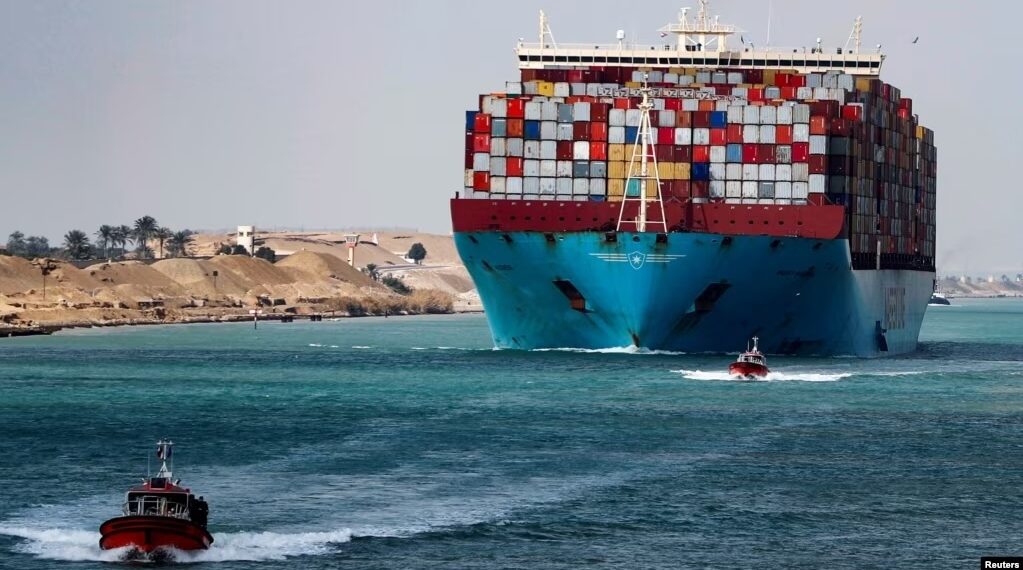By John F. Di Leo, Opinion Contributor
What is the sphere of influence – that is, the region in which the United States has a legitimate right to assert itself on the world scene, and demand respect for our borders, our shores, our people and our goods?
When our nation was in the process of being founded in the 1770s and 1780s, our Founding Fathers would have identified our thirteen colonies, and stopped there. We weren’t interested in other nations’ petty squabbles and they had no business being involved in ours, so we believed.
That position was soon to change.
We hadn’t realized that our global shipping had been protected all along, first by the British flag, and then by the French flag. Until we became independent and no longer enjoyed such foreign protection.
By the end of the 18th century, we were finding ourselves in debt, shamefully paying tribute to the islamic thieves and kidnappers of the North African coast. In the first years of the 1800s, the Jefferson administration sent the Marines to teach them a lesson.
In order for America to participate in the global economy, even way back then, our sphere of influence had to contain at least whatever spots on the high seas contained an American ship, no matter how far away.
Another twenty years hence, and the United States were beginning to appreciate the obligations of being a major nation surrounded by smaller, more vulnerable nations. John Quincy Adams designed a concept named for his then-boss: the Monroe Doctrine. The New World was our sphere of influence, and the Old World had better not meddle here.
As the decades went by, and the American economy grew in both size and complexity, our sphere of influence, or at least, the sphere in which the United States had to be at least respected, if not dominant, grew to encompass the entire world, and beyond.
We’ve put research facilities on Antarctica and planted flags on the Moon, not to claim them entirely for ourselves, but at least, to communicate to the world that we have an interest – here, there, and everywhere, so everyone else had better respect our free and safe passage, whether we pass through as tourists, as soldiers, or as businessmen.
At any given moment, there are several million Americans outside the borders of the United States – likely between three and six million at a time – counting everything from soldiers and sailors serving abroad, to American students studying abroad, to American businesses located abroad, with American plant managers, salesmen, quality and production managers and engineers, and all the other folks from the home office that it takes to operate an office or factory in a foreign country. And that’s without even counting the American expats who are just living abroad for awhile (or for good).
The American interest includes all of these as well.
As our footprint has grown, our need for a robust military has grown with it; it’s had to. And our government has generally understood that need, regardless of party.
Federalists and Jeffersonians, then Democrats, Whigs and Republicans, have always understood the need to ensure that the world understood – always – that no matter how far away, if American college students are threatened in Grenada or American tourists are threatened on a cruise ship in the Mediterranean, the perpetrators – be they pirates or terrorists or government lackeys – will have to answer to us. Some presidents have been better at this than others, but at least they all seemed to understand the need, until the Biden-Harris regime came along.
And this need has grown infinitely with modern container shipping.
There are two particularly significant man-made passages in international commerce – the Suez Canal and the Panama Canal. Thousands of massive ships – from cruise ships to bulk vessels, from car carriers to intermodal containerships – pass through these two canals every year, eliminating the need to go around the continents of Africa or South America, saving the operators countless millions of dollars per transit in fuel, time, leases and salaries; the savings effected by these canals are reflected in more affordable shipping rates.
The Panama Canal has suffered greatly in recent months due to drought, which is now naturally resolving itself at last.
But the Suez Canal is a nightmare. It’s been almost completely closed now since roughly November, 2023, as Iran-funded-and-equipped Houthi rebels in Yemen have taken up their perches and attacked vessels attempting to traverse this internationally critical shipping lane.
Virtually all commerce between Asia and Europe travels through this path. The Indian Ocean and the Mediterranean Sea are linked by this narrow path from the Arabian Sea through the Red Sea and finally, the Suez Canal.
But what’s that you ask? That’s just commerce between Asia and Europe, so the USA doesn’t have an interest?
That’s where the advent of the intermodal container comes into it.
The intermodal container was developed some 80 years ago, and its practical usage has dominated the shipping world for the past 60. These 20’, 40’, and 45’ steel boxes are interchangeable and reusable, serving hundreds of voyages each, lasting years, even decades. Tens of millions of these containers enter and exit the USA’s seaports every year.
There are only so many of them, and the global flow of imports and exports enable their replenishment so that there is always an empty one ready to fill when it’s needed for its next voyage, no matter where from, and where to.
Similarly, the ships they sail on are also movable, taken out of one lane and put into another lane as cargo volumes shift. The system was a well-oiled machine, enabling prompt and innovative global transportation – until the Houthi rebels got the word from their bosses in Tehran to bring the world economy to a halt last year by blockading the Red Sea so that the this shipping lane would be off limits to the entire planet.
Now, they may not all be aware of it themselves; some of these missile-happy Islamo-fascist terrorists in Yemen probably don’t know the intricacies of global commerce. But the facts are the facts, nevertheless. By shutting down the Suez Canal, Iran and its proxies are costing the global economy over a billion dollars per day. They know exactly what they’re doing.
They are directly hurting the economies of Europe and Asia, of course, by adding billions per day in shipping costs, through the necessary diversions of all these ships, all that additional fuel used, all that additional cargo space removed from the marketplace, all those slowdowns in the supply chains of the hundreds of thousands of businesses dependent on cargo being transported on these lanes.
But in addition, they are indirectly hurting the economies of the rest of the world too, and that means the United States as well, because ships and containers, and breakbulk vessels and tankers, are a global supply. When the Asia-Europe lanes use up a greater percentage of that supply than usual – as they have for nearly a year now – that’s that much less supply for such trade lanes as the Transatlantic and Transpacific trades between the United States and our own trading partners in Latin America, Europe, Asia, Africa and Australia.
Besides, the ownership of so many of these shippers is global; as they are multinational companies with supply chains and ownership around the world. Even if no American owns stock in the shipper or consignee of a container forced to go around Africa because the Houthis closed Suez, there are American vendors who supply other things to that shipper or consignee, or American businesses dependent on their products for the goods we manufacture here. The world’s supply chain is interconnected.
We are in a recession (whether we want to acknowledge it or not); we have been for about three years now. The global economy simply cannot afford this unnecessary daily burning of countless billions of dollars in capital.
There are other western nations in a position to help, but they have been conditioned for generations to take their lead from the United States in such matters. If we won’t do it, they entertain the assumption that they shouldn’t.
For nearly a century now, the United States has been the one nation on earth with both the power and the moral high ground in these matters. We should act, even if others fear action.
Of all the moral failures of the Biden-Harris regime – and they are legion – this example is among the most unforgivable, because it is such an easy solution.
The USA is the one country that could easily bomb the Houthis off the face of the earth, without fear of retaliation from Iran and its other proxies. We should have done it last winter; every day we sit back and do nothing, we cost the economies of the world billions of dollars in commerce.
Make no mistake – there IS a human cost to this inaction. When billions of dollars are wasted in the global economy – because every importer and exporter must pay several thousand dollars more per truckload than usual – that means corporations go out of business, people starve, villages collapse, governments fall.
The press doesn’t make the connection; they may not realize that a town a thousand miles away is suffering because it didn’t get a new plant built, because the would-be plant’s owner couldn’t afford their intended expansion after all, because its costs were inexplicably higher than expected this year – because their transportation spend was double their budgeted amount this year. It’s true nonetheless, but it’s not obvious until you study the situation closely.
But all over the world, ocean transportation rates have doubled or more over the past year because of this inexcusable nightmare. And the one room where the decision could have been made to fix it – the Oval Office at 1600 Pennsylvania Avenue – has been occupied by a couple of nonentities who think that America’s job is to sit on the sidelines and watch, rather than to solve a massive problem that they could have solved on Day One.
Over a century ago, Massachusetts Governor Calvin Coolidge declared “There is no right to strike against the public safety – by anybody, anywhere, at any time.”
It’s long past time we had a manager in the White House who understood that principle and put it to work. In the 21st century, there is no right to blockade the Suez Canal, a critical gear in the engine of the world economy.
We are the one country that could remove the Houthis and their illegal, malevolent action from the equation, and in one fell swoop, take great strides toward rebuilding our teetering economy.
Whether the milquetoasts currently in the White House are willful puppets or just unconscious enablers of Iran’s mullahs, the sooner they are removed from office, the sooner our nation, and our world, can recover from the effects of their universal mismanagement.
November 5 cannot come too soon.
Copyright 2024 John F. Di Leo
By John F. Di Leo, Opinion ContributorZohran Kwame Mamdani doesn’t exactly sound like an American name, does it?And yet, since the June primary, it’s the name of the...
Read moreDetails








